We're an affiliate
We hope you love the products we recommend! Just so you know, we may collect a share of sales or other compensation from the links on this page at no additional cost to you. Thank you if you use our links, we really appreciate it!
Cats and dogs are often portrayed as being natural enemies. The truth is that cats and dogs can get on very well if they are introduced to each other during puppyhood and kittenhood. Some types of dogs can however get on worse with cats.
You might be surprised to learn that some of the most popular dog breeds don’t get along with cats. Some dogs are so cat-aggressive that they should never be around cats, whether they’re house pets or out in the yard.
Why do some dogs hate cats? The worst dog breeds for cats are often those with a natural instinct to hunt. They are prone to chase and stalk small animals such as cats. It is therefore important to choose a dog breed that is suitable for living with a cat from the outset.
If you’re considering adding a dog to your family, it’s important to be aware of these breeds and understand the risks associated with them.
While not all dogs of these breeds will automatically hate cats, there’s always a chance that they will. And if a fight does break out, it could result in serious injury to both pets.
In this post, we’ll take a deep dive into the top 20 dogs that hate cats.
Dogs And Cats: A Love-Hate Relationship
So, you have a cat and you’re thinking about getting a dog. Well, before you make any decisions, it’s important to know that not all dog breeds get along well with cats. In fact, there are a few that don’t like them at all.
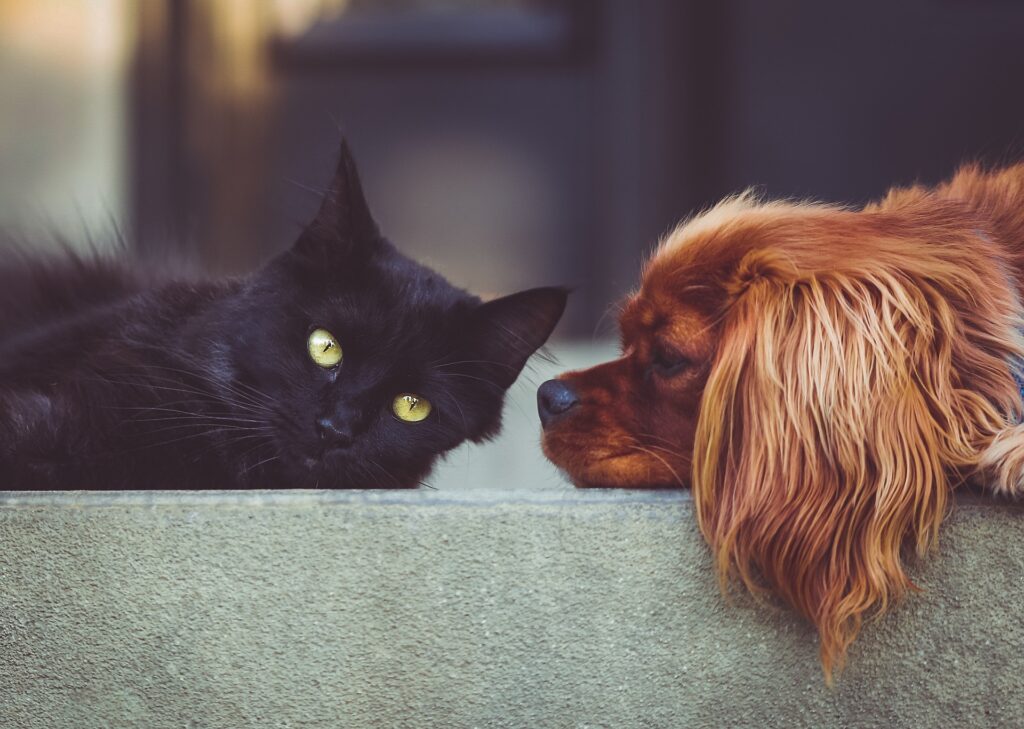
If you’re considering adding a furry friend to your family, it’s best to do your research first and make sure you choose a dog that will get along with your cat. Otherwise, you could be in for some serious trouble.
What Dog Breeds Are Not Good for Cats?
If you’re a cat owner, it’s important to do your homework and find out which breeds of dogs to stay away from.
It’s also worth being aware of the fact that just because a dog may not be on this list, it doesn’t mean that they automatically get along with cats.
You also need to know that the dogs in this list can be taught to live with cats. Early training is key and
Every dog is different, so you’ll need to take the time to get to know each one before you decide to introduce them to your feline friend.
That said, here are the top 20 dog breeds that don’t get along with cats:
Small Dog Breeds That Don’t Get Along with Cats
1. Chow Chow
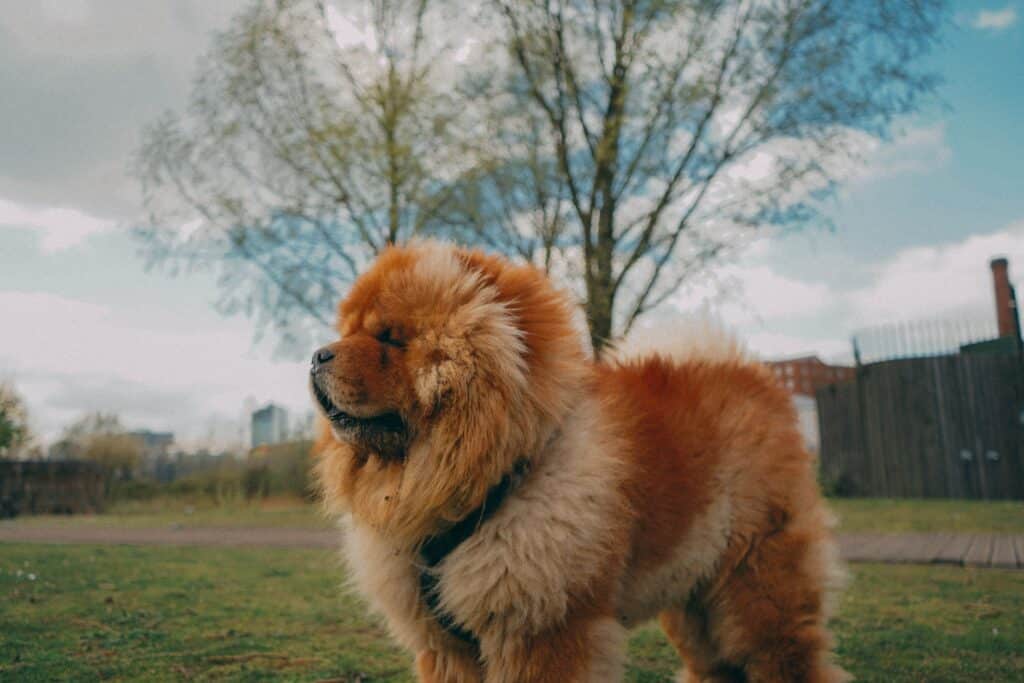
Chow chows are known for being very dominant and territorial, which can lead to problems between them and felines.
Chow Chows are a very territorial breed, which means they’ll attack other animals if they feel threatened. They can also be aggressive toward children and other pets.
If you have a Chow Chow and your cat lives in the same house, it would be best to keep them separated or have them live in different rooms of your home at all times. With early socialization and proper training, these dogs can make good friends with cats.
Chow Chows are not good with other dogs either because of their strong sense of territory and dominance over their owners as well as others around them.
2. Miniature Pinscher
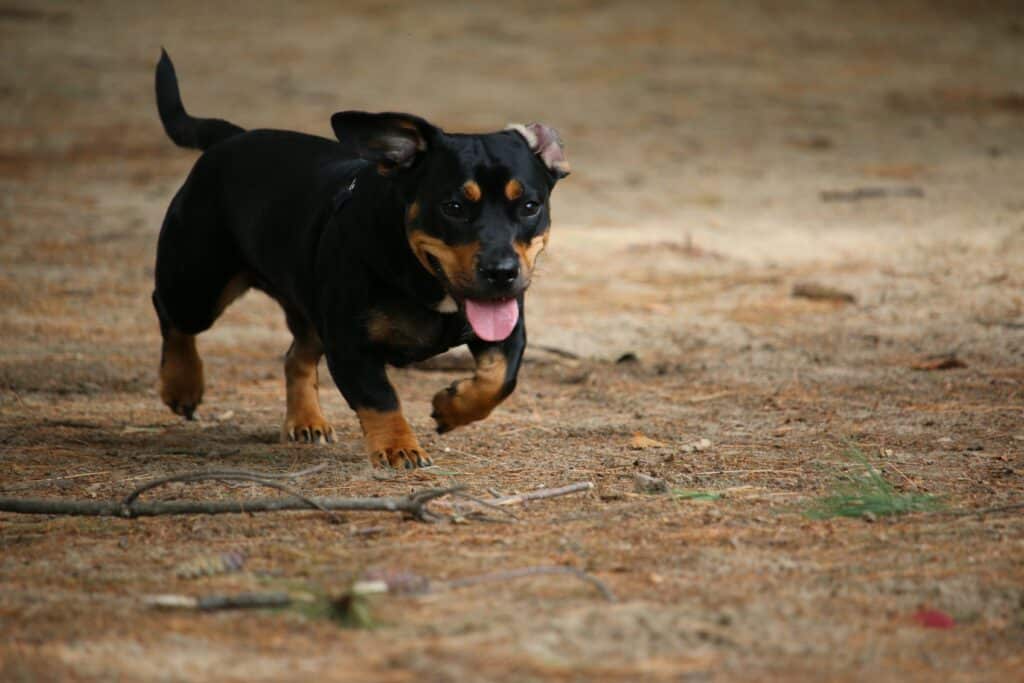
Miniature Pinschers are very energetic and excitable dogs that are often very loud when barking. They are not the best choice of dogs for households with other animals, since their high level of excitement can cause them to be too stressful for a cat to live with.
They are also prone to chase small pets in the house including cats. Miniature Pinschers are also very strong dogs that can be too rough and aggressive for a cat to defend themselves against if they get attacked.
3. Yorkshire Terrier
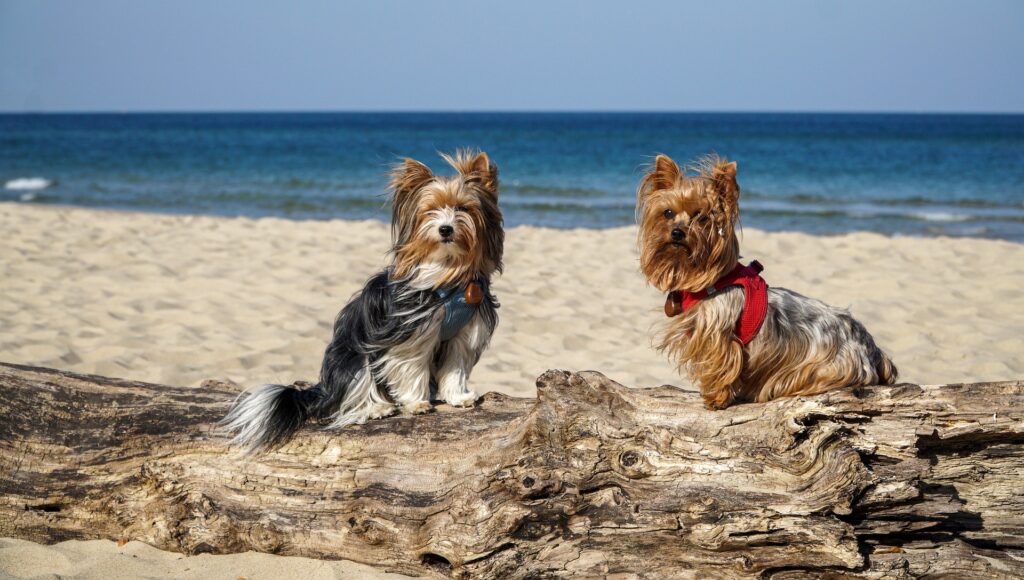
Yorkshire Terriers are very energetic dogs that are often too hyperactive to be good companions for other animals.
Yorkshire Terriers often bark a lot and tend to chase after things that move, including curious and playful cats.
Being very small dogs, Yorkies can be too rough and aggressive for a cat when defending themselves if they get attacked.
4. Jack Russell Terrier
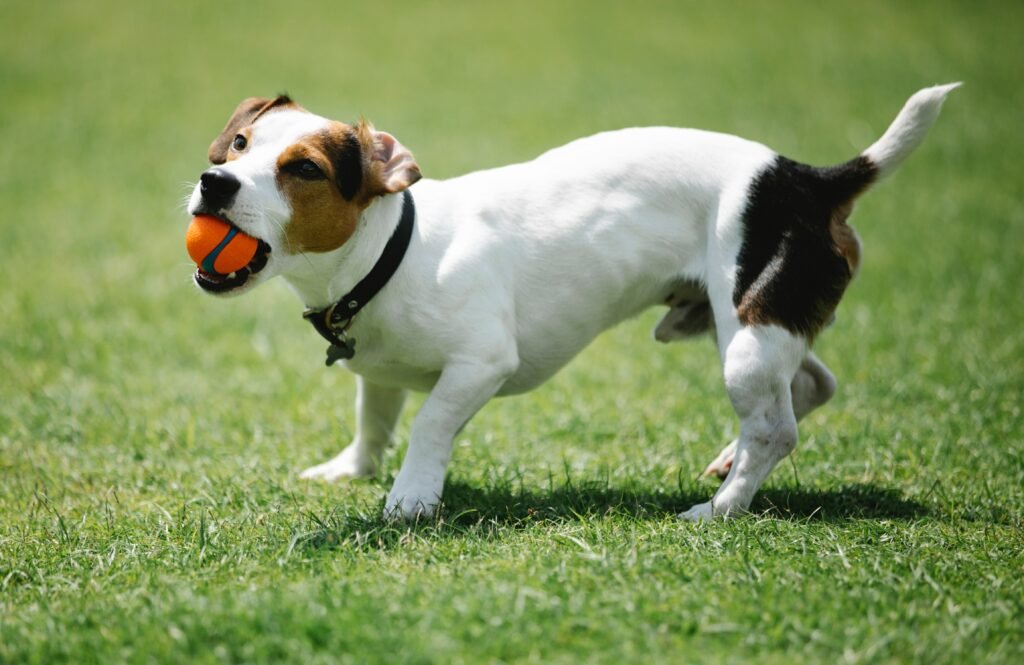
The Jack Russell is a small Terrier dog that’s friendly and playful, but it can also be quite mischievous.
They are another bad choice for a cat-friendly home because of their high energy and tendency to be very vocal. They also have a strong prey drive and may view your cat as a potential target.
With proper socialization, Jack Russell Terriers can make friends with cats during their early years.
If you do decide to get one of these dogs, make sure that they don’t get too close to cats during the first few weeks. Always supervise your dog when they are with other animals, like cats.
5. Dachshund
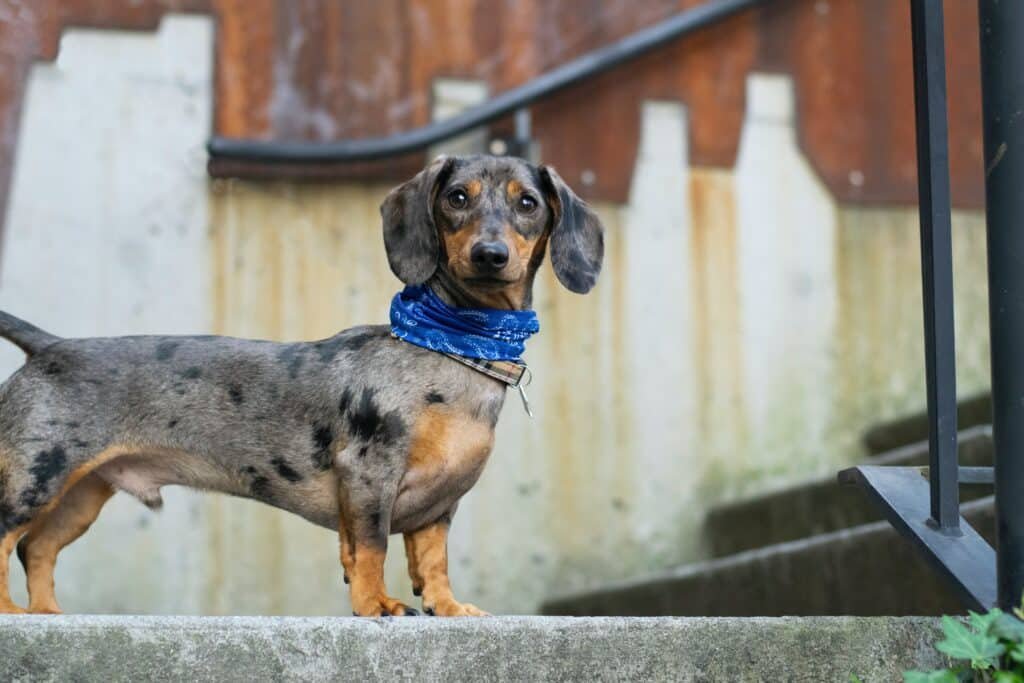
Dachshunds are a very outgoing, friendly, and playful breed of dog. They like to spend time with their owners and can therefore be a little boisterous and overwhelming for a cat.
Dachshunds are also very energetic and love to run around and explore. This can be worrying and upsetting for a cat that likes a quieter, more sedate environment.
They are also small dogs, which can make them harder for a cat to ignore and more likely to get chased and attacked by a curious or scared feline.
6. Schnauzer
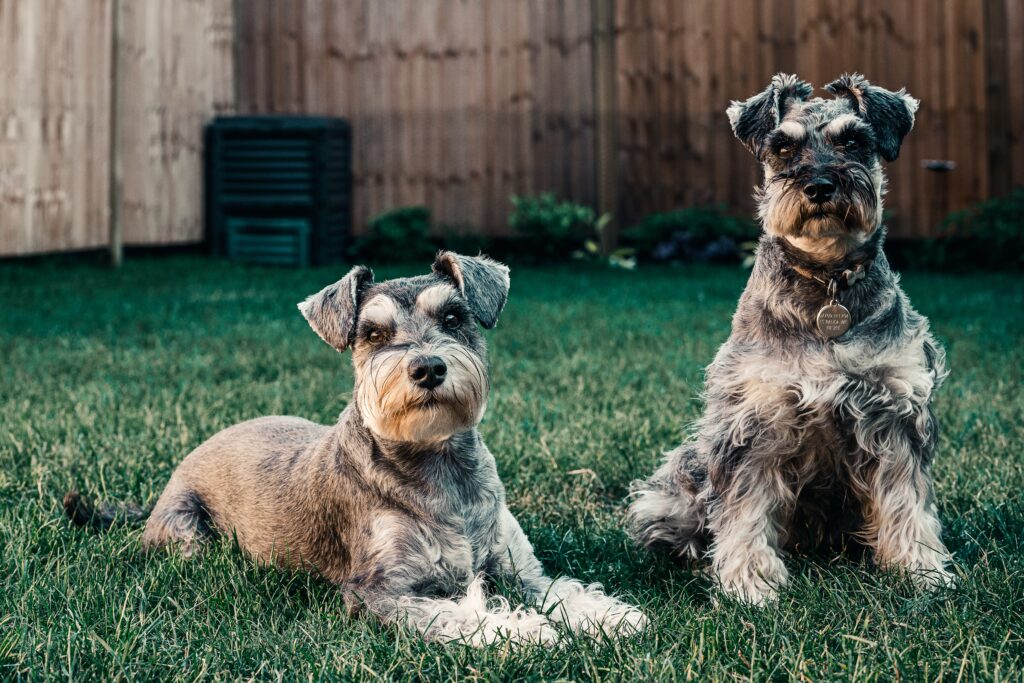
Schnauzers are lively dogs that are very sociable and loving towards their owners. Unfortunately, they often don’t show the same affection towards other pets in their household.
Schnauzers can be very territorial and protective of their owners, which can cause them to be unfriendly towards other pets in the house.
Schnauzers are also very excitable dogs that often bark a lot. This can make them stressful animals to live with since most cats prefer a quieter environment.
And because Schnauzers are strong dogs, they can be too rough for a cat to defend themselves against if they get attacked.
Large Dogs That Don’t Get Along with Cats
7. Australian Cattle dog
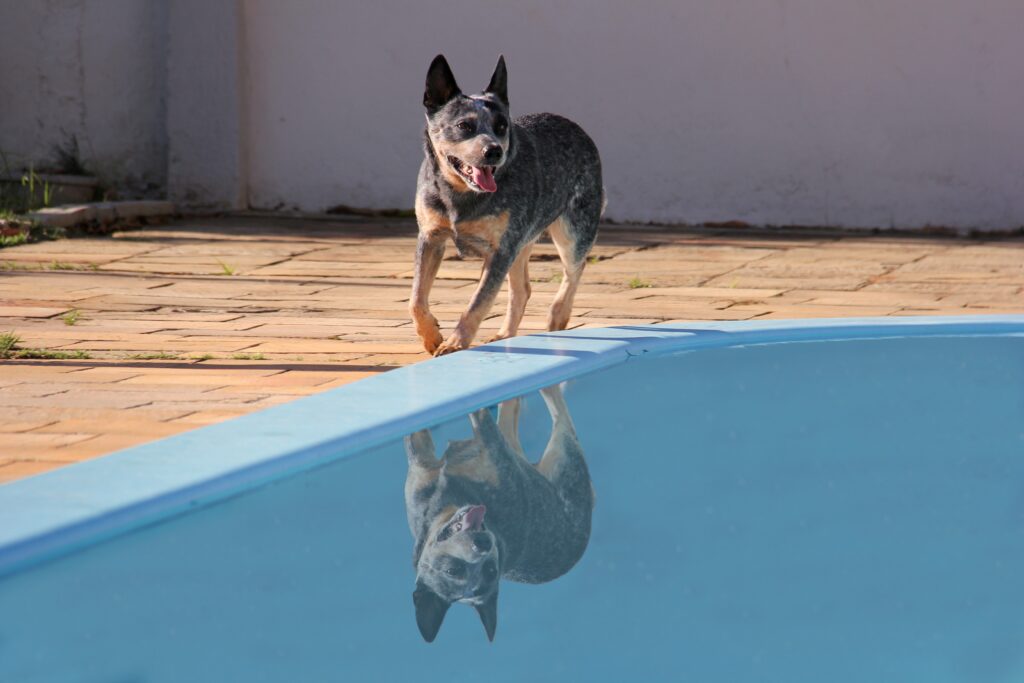
The Australian Shepherd is a large, energetic dog that loves to run, hike and play. They are also very active indoors and will enjoy fetching toys or running around with their family members.
The Australian Shepherd can be protective of its family members, but they do not make good guard dogs due to their tendency to bark at strangers passing by outside the home.
This breed has been known to be aggressive towards other pets; you may want to consider keeping your Australian Shepherd on a leash when out walking in public areas where there are cats and other dogs around.
This breed can however live with cats in the same home when raised together from puppyhood.
8. Border Collie
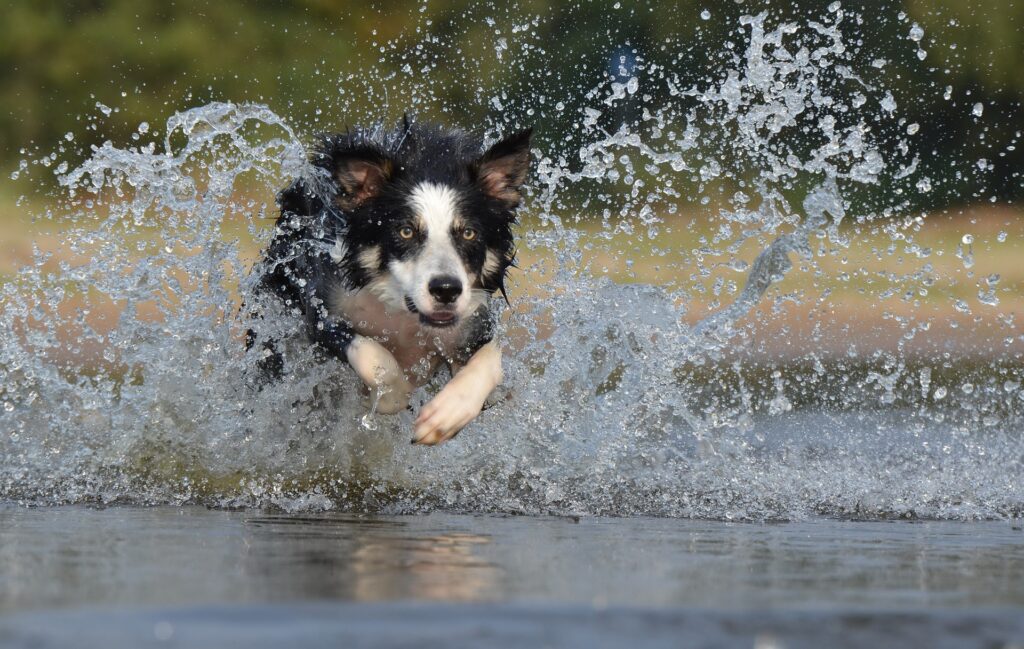
Border Collies are excellent working dogs, but don’t make very good pets in a home environment with cats.
They are highly intelligent and energetic dogs – traits that make them great for herding sheep, but not so good for sharing a calming bed with a cat.
The Border Collie’s high prey drive makes them dangerous around cats and other small pets. This breed does not like being left alone for long periods, so you must have a fenced yard or doggy gate if you want your pet to spend time sometime alone.
They also have a tendency toward separation anxiety when left alone at home; this may cause them to bark excessively or chew things up when left alone in the house. This can be very traumatic for a cat who is used to living in a relaxing home environment.
9. American Bulldog

The American Bulldog, also known as English White Bulldog, is a large breed that can weigh up to 130 pounds. They are very strong and should not be left alone with cats.
The American Bulldog has a strong prey drive, which makes them very dangerous around small animals like mice or birds (especially songbirds).
This dog may be aggressive towards cats and other pets, especially if they have been trained in this way.
10. Doberman Pinscher
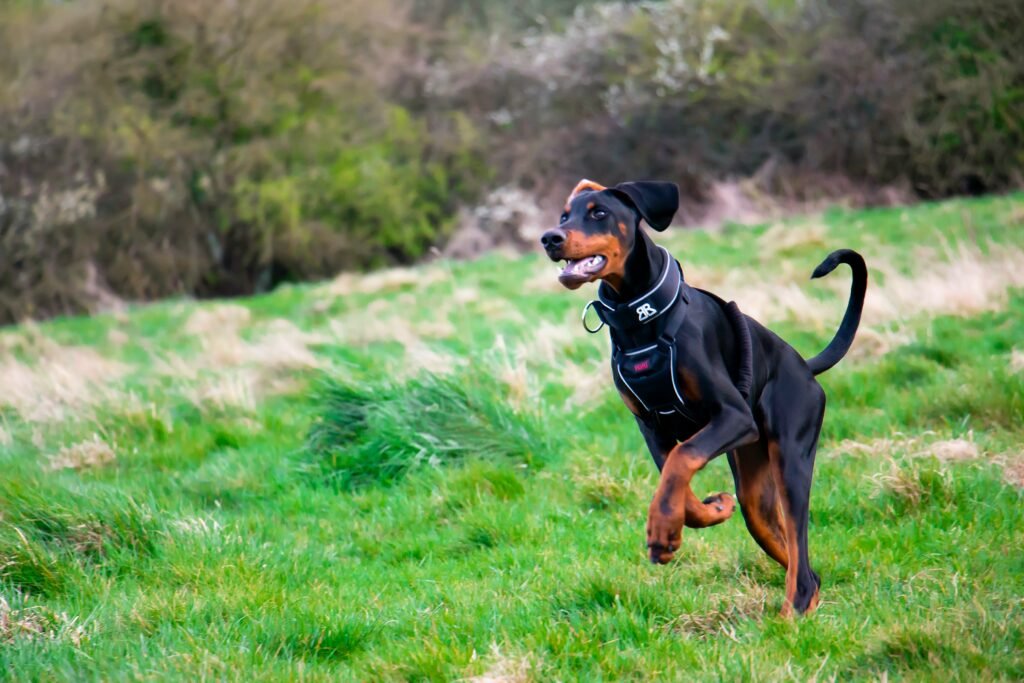
Do Dobermans get along with cats? Not really. Doberman Pinschers are a very territorial breed. They like to be the only dog in their homes and can become aggressive if a stranger comes into the house.
This breed has been known to attack other animals, including cats, other dogs, and even birds! If you want a dog that won’t cause problems around your cats, then you should be extra careful with Dobermans.
They also tend to display aggression towards children especially when provoked.
11. Alaskan Malamute
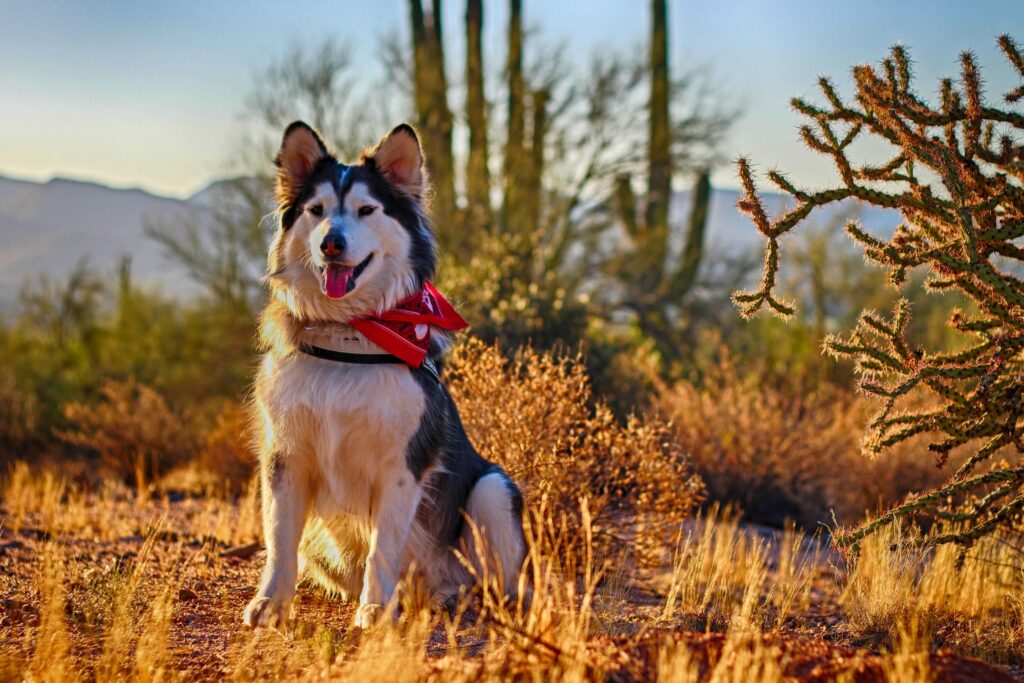
The Alaskan Malamute is a large, strong athletic dog with a thick coat. It’s very friendly towards kids and some pets, but can be aggressive towards cats.
Mal can however be introduced to cats at an early stage. They can grow up to become best friends in the house.
The Malamute was originally bred by the Inuit people in Alaska as an all-purpose dog. They could carry heavy loads while withstanding extreme cold temperatures without being affected (the name “Malamute” means “strong”).
12. Great Dane
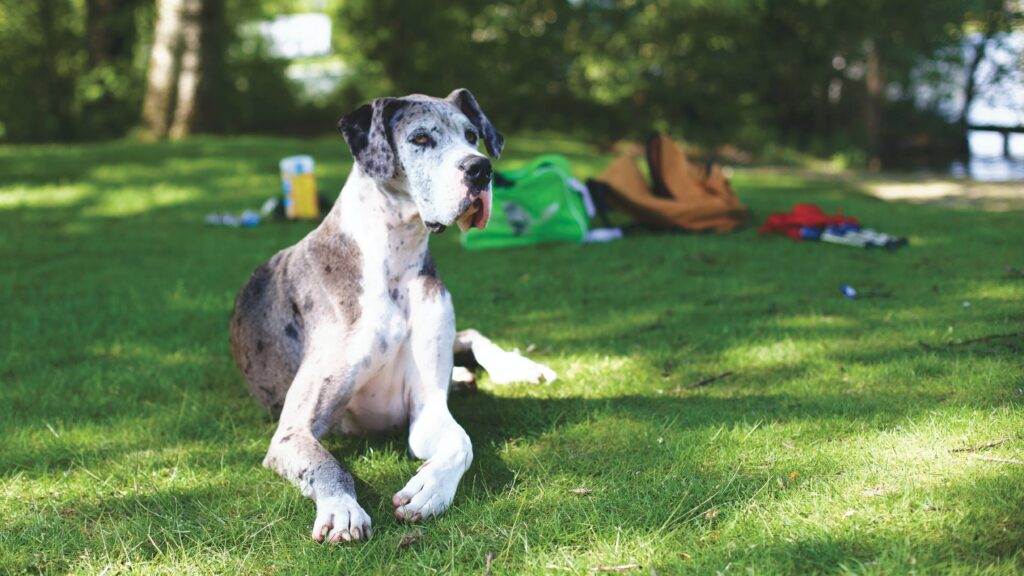
A Great Dane is a large dog, so it’s not surprising that they are much bigger than your cat. They are very energetic and playful, but this can also make them dangerous around cats.
They have a strong prey instinct, which means that if you have cats or other animals in the house, they may try to chase them.
Great Danes aren’t great with other dogs either; they’re known for being aggressive toward other canines.
13. Greyhound
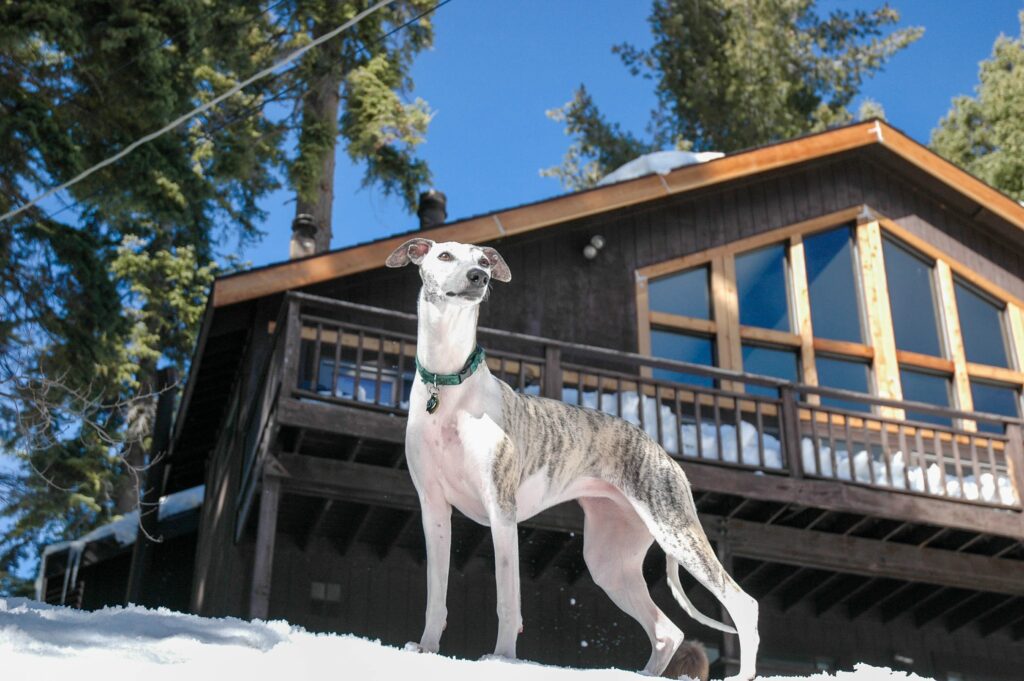
Greyhounds are naturally born to hunt and they can run so fast. They are easily enticed to chase down cats and other small companions in the house.
This may threaten your cat and may lead to a scuffle that might turn out to be ugly.
Greyhounds are very hyperactive dogs and can bark a lot when they are excited. This can make them stressful for cats who prefer a quieter and tranquil environment.
Whilst they are good family dogs, Greyhounds will certainly not do well in a home with cats and other small pets.
14. German Shepherd
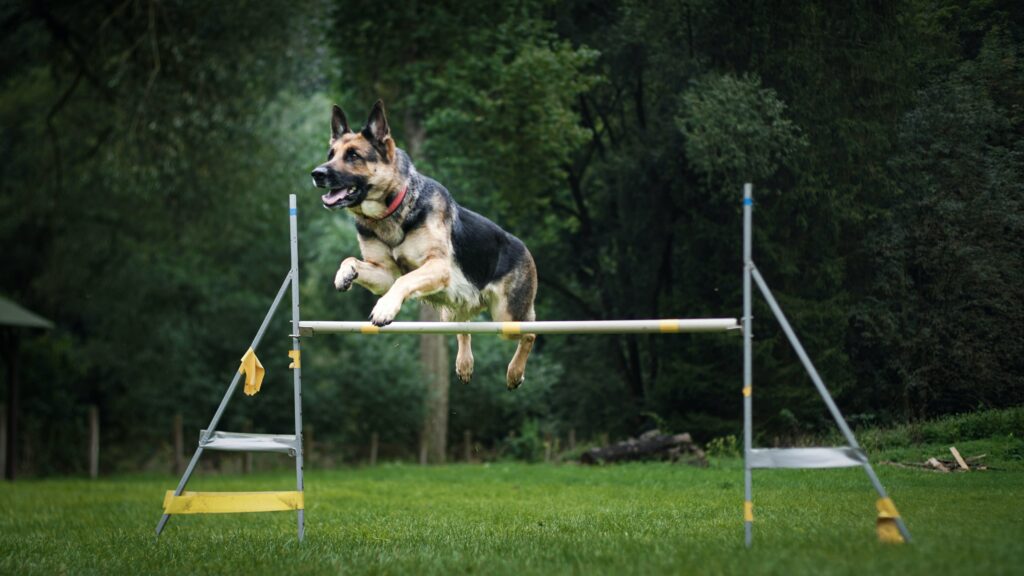
German Shepherds are very friendly and gentle dogs, but they can be a little overprotective and territorial. They have a strong instinct to guard their owners and their belongings, which can make them bad company for a cat.
German Shepherds are also huge dogs, making them intimidating and difficult to ignore for a smaller, less confident cat. These dogs are also very excitable dogs that often bark a lot and can be very hectic for a cat to live with.
15. Dalmatian
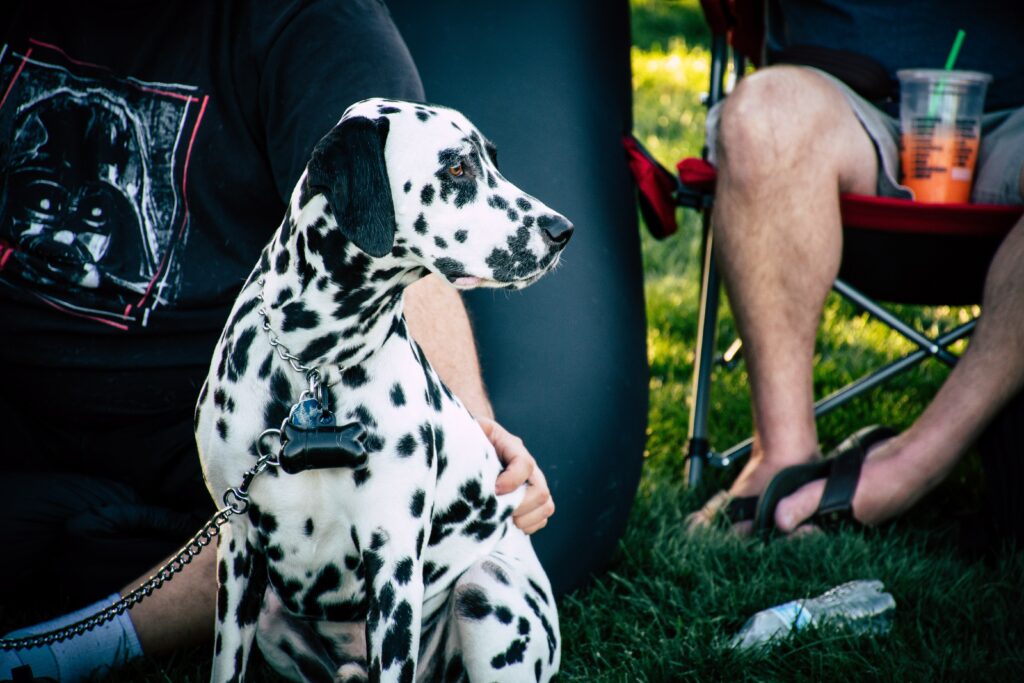
Dalmatians are very energetic dogs and need a lot of exercises. They are known to be aggressive with other dogs, as well as cats.
If you have a Dalmatian and your cat doesn’t get along, you need to tone down the process and take it slower. This is because they may not readily welcome newcomer felines, but can get along well with proper introduction.
16. Scottish Deerhound
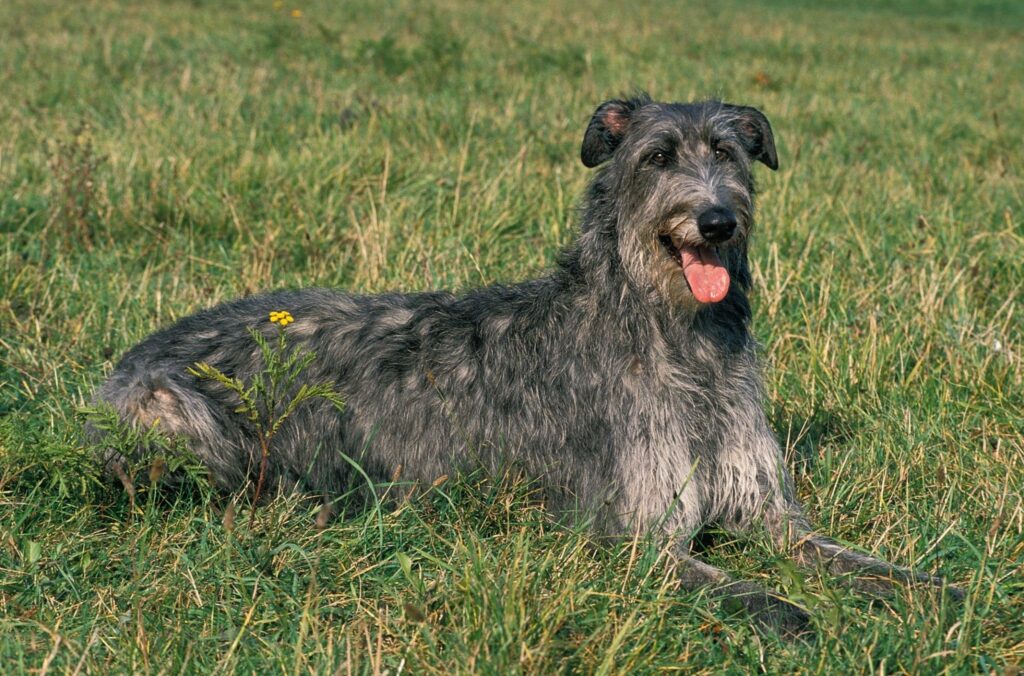
Deerhounds are gentle, friendly dogs that are very patient and kind around people, cats, and other animals. They are also very relaxed dogs that often enjoy a more sedate lifestyle.
As a result, a Deerhound may not be overly excited to chase a curious and playful cat, but they may find it hard to resist!
Deerhounds are also very large dogs that can be overwhelming and scary for a cat to live with. They may be too strong for a cat to defend themselves against if they get attacked.
17. Rhodesian Ridgeback
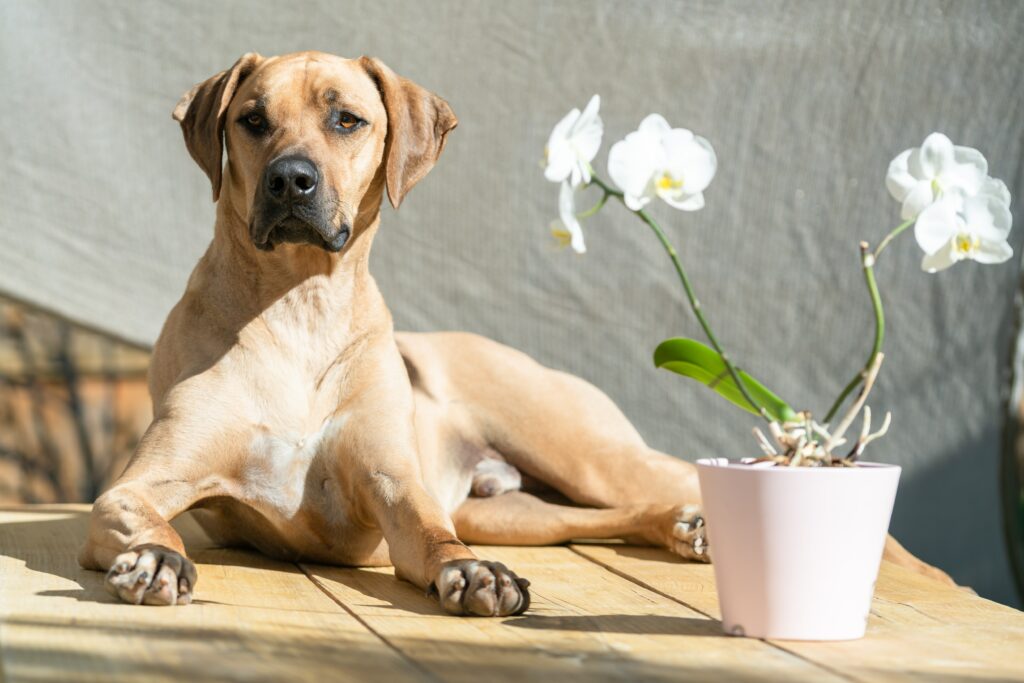
Rhodesian Ridgebacks are friendly and gentle dogs that often make excellent companions for families. They are very patient dogs but can chase or bark at small animals such as cats.
Rhodesian Ridgebacks are very laid-back dogs that often like to relax. This can make them unsuitable for some households with cats especially when provoked.
Rhodesian Ridgeback and cats may not make the best friends in one home. However, they can get along if introduced at an early age. You should take high caution when adopting this dog if you have a feline.
18. Pit bulls
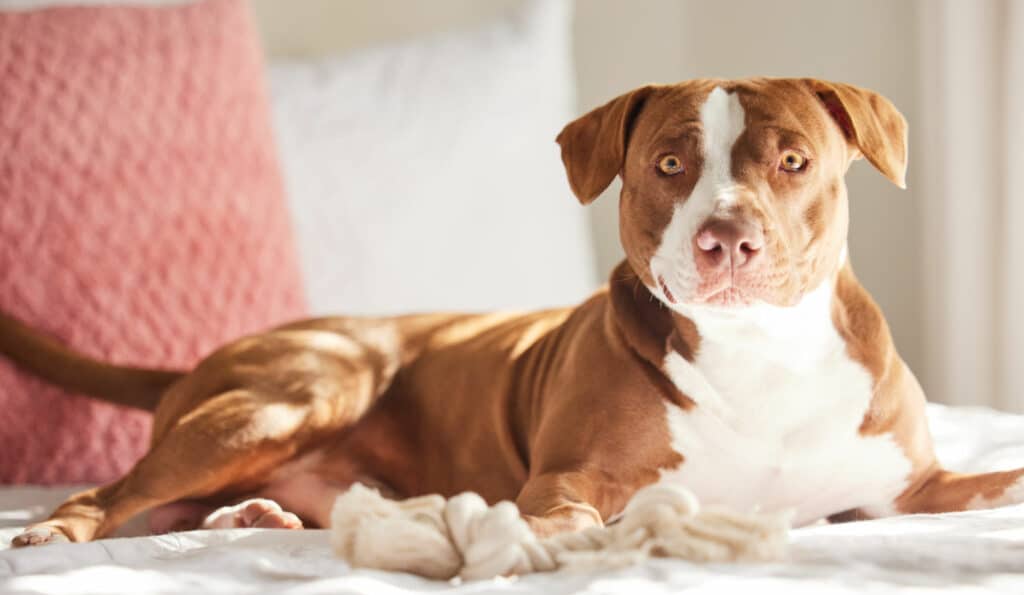
Pit bulls are another breed of dog that is not well-suited for living with cats. They were historically bred to bite and hold bulls and large wild animals.
Pit bulls are often aggressive and have powerful jaws that can do a lot of damage to a cat if they were to attack.
They can however get along when they are raised together in the same home.
19. Rottweilers
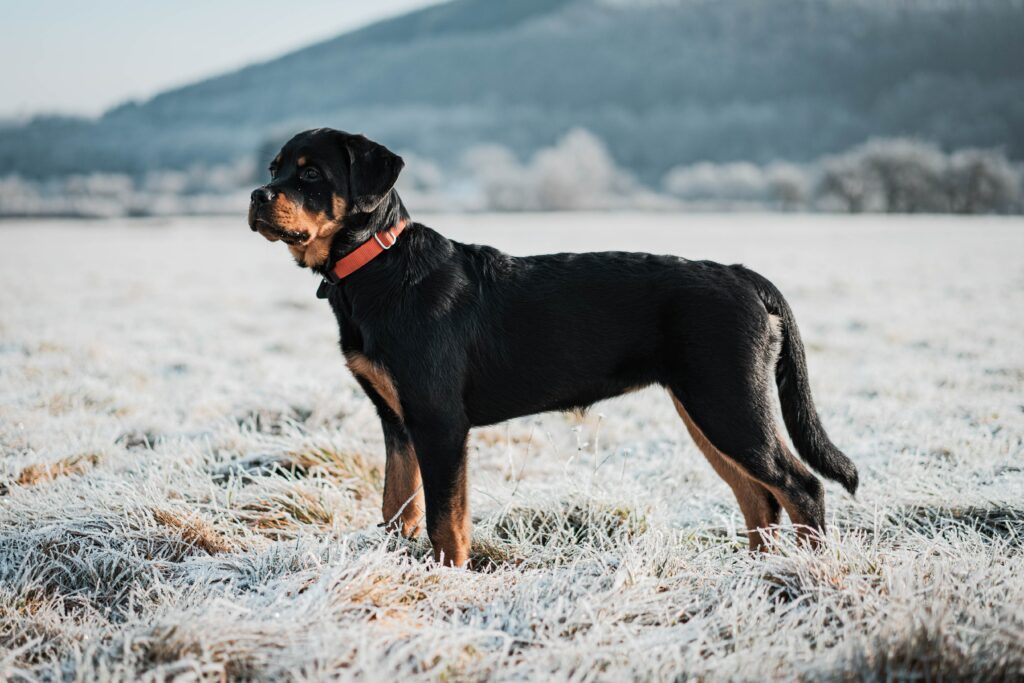
Rottweilers are large, powerful, and protective animals that make excellent guard dogs. They can be very aggressive, and their size means that they can easily injure a cat in a scuffle.
They have a strong prey drive and will chase cats, as well as other dogs that don’t run away fast enough.
Rotties are also not good with small dogs because they can be jealous of the attention you give them (often by playing with your other pets).
In addition, Rotties tend to be stubborn and independent—they’re not exactly easy-going or cuddly! Finally, many Rotties are guard dogs who bark at strangers when there’s no real threat present. This might be hectic for cats who prefer a serene home environment all the time.
20. Bullmastiff
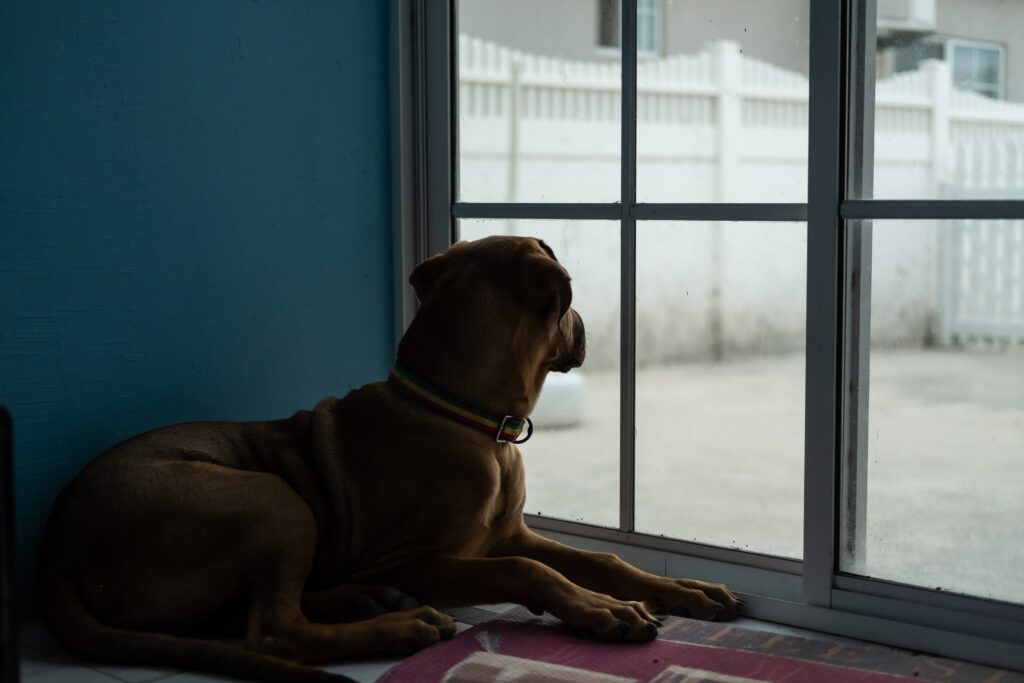
Bullmastiffs are large, heavy dogs that have a reputation for being aggressive. They are also protective and territorial hence making them a threat to household cats. They are fond to chase household cats due to their natural prey instinct.
If you have any other pets, especially cats, you might want to reconsider adopting one. Take precautions when adopting this adult dog if you also have an adult cat.
However, bullmastiffs do make excellent companions if they are raised with your cat from puppyhood.
What to Do if Your Dog Doesn’t Like Your Cat
So, you’ve just brought your new dog home, and you’ve also got a cat. You’re looking forward to seeing the two of them get along, but unfortunately, it doesn’t seem like that’s going to happen.
In fact, your cat is downright scared of your dog and is always trying to stay away from them.
Don’t worry, you’re not alone. A lot of people go through this same thing. And the good news is that there are some things you can do to help them get along.
The first step is figuring out why your dog doesn’t like cats. In most cases it’s just a matter of temperament, some dogs are just naturally more aggressive or territorial than others.
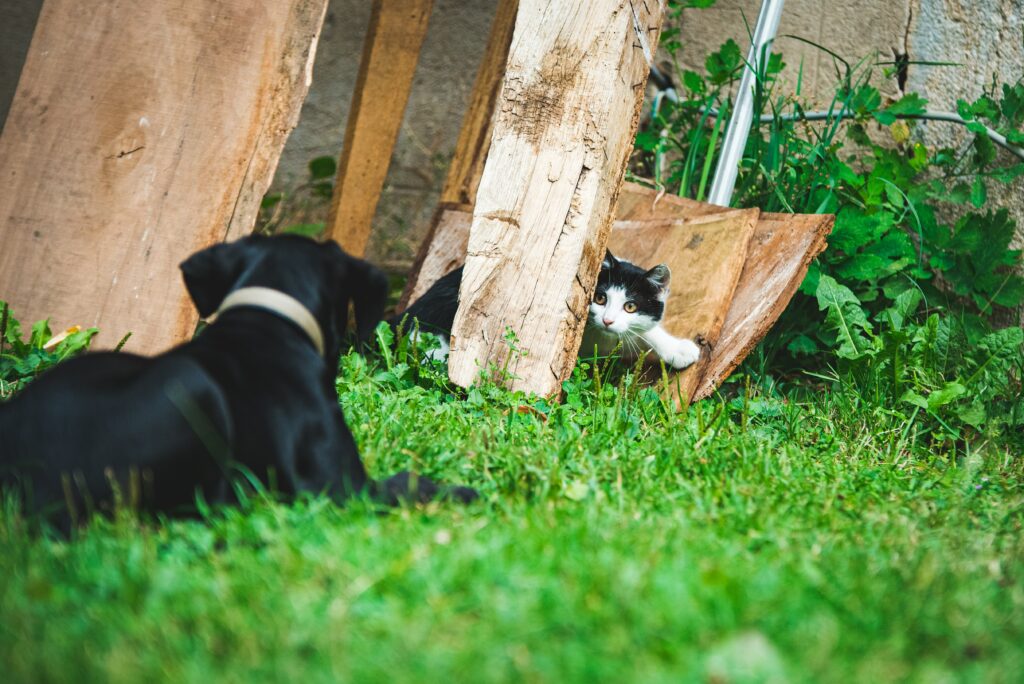
But sometimes it’s because the doggo has had a bad involvement with felines in the past.
If it’s the latter, then you’ll need to slow things down. Start by introducing the two animals in a controlled environment, like your backyard or a park, where they can get used to each other’s smells and sounds.
Don’t push things too fast, let them take their time. And always be there to supervise them, in case things get too rough.
If your cat feels threatened by your dog, you can pet them in the right way to calm them down. This also helps them to feel more secure and loved.
Frequently Asked Questions
Q1: How to tell if a dog is aggressive toward cats
You might be thinking that your pooch and kitty are getting along just fine. Well, maybe not so fast. It can be difficult to tell if a dog is aggressive towards cats. However, some telltale signs may indicate that a dog is not well-suited for living with a feline friend.
Here are a few signs to watch out for to know:
1. Your dog follows your cat around, constantly trying to provoke a reaction.
2. The dog watches your cat attentively as if trying to figure out who they are.
3. They constantly growl or bark at your cat whenever they come near.
4. The dog tries to chase the cat whenever they meet.
5. Your dog seems generally stressed or anxious in the presence of felines.
6. Your dog tries to attack your cat at any chance they get. Always try to prevent aggressive behavior from reaching this point. Fighting can easily lead to injuries on either pet.
If you see any of these signs, it’s probably best to keep them separated until you can be sure that they’re getting along better.
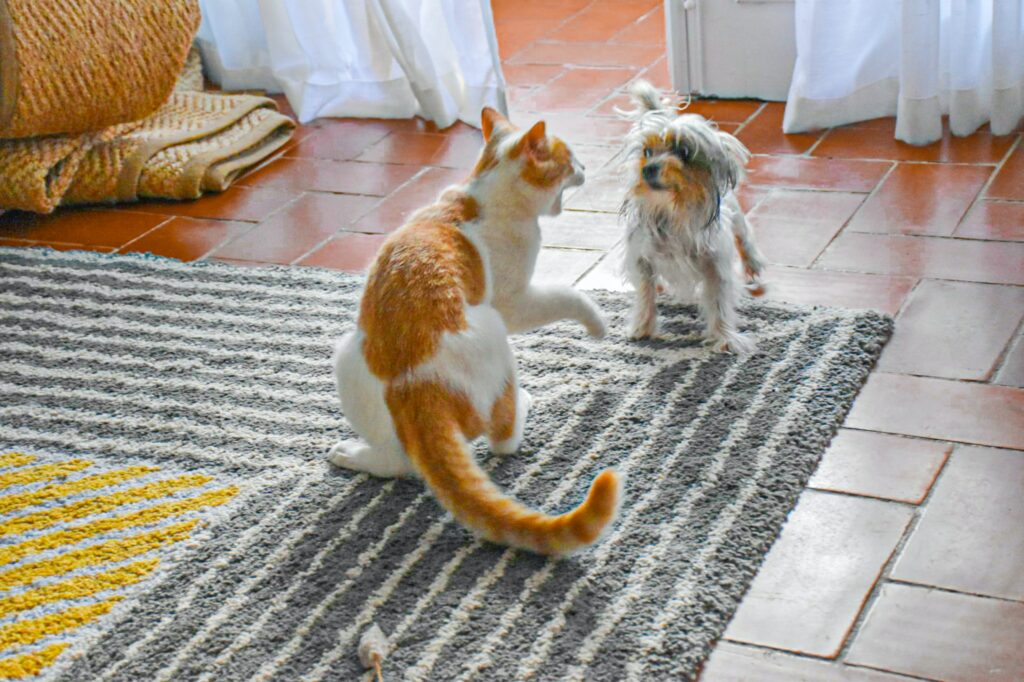
In any case, you don’t want your pets to fight, and you definitely don’t want your cat to get hurt in the crossfire.
If you’re doubtful whether your cat is safe around dogs, it’s best to avoid the risk and have them separated from each other.
You may want to consult with a certified animal behaviorist to find out if there’s an underlying problem.
Q2: Is it easy to introduce a dog to a cat?
This process should be easy once you follow the steps consistently.
When you’re introducing a new dog to a household with a cat, there are a few things you need to keep in mind. For one, both animals must have their own space.
This means having a designated room for each pet and also having separate food and water bowls.
Begin by allowing them to smell each other through a barrier, such as a dog gate or screened door. When they appear relaxed with each other’s presence, you can now allow them to interact under close supervision.
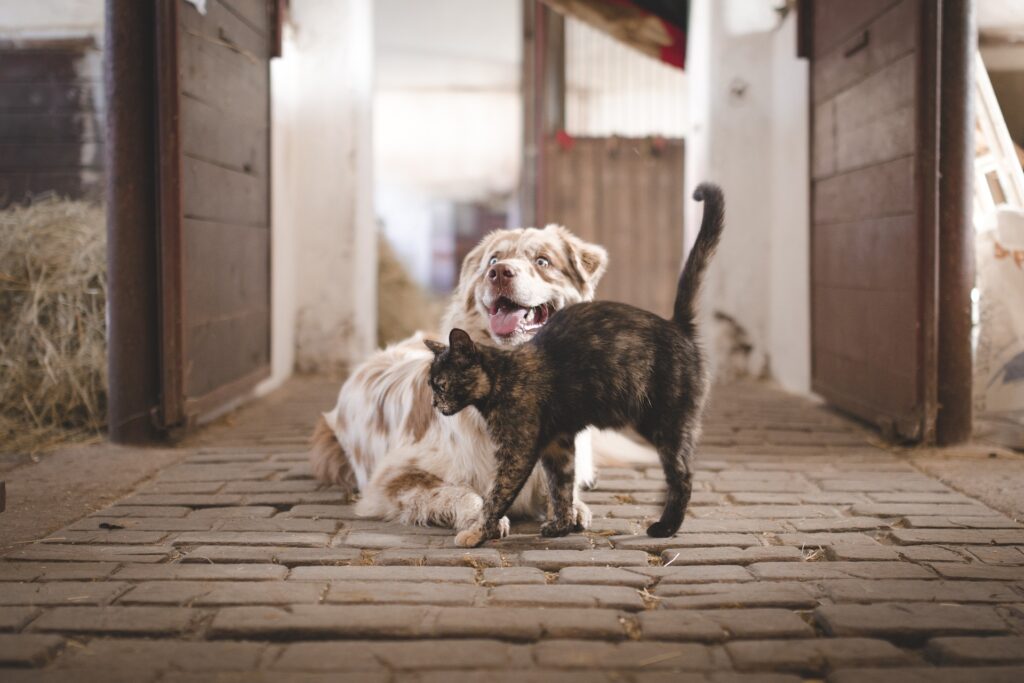
Proceed by having them spend short moments together in the same room. And if things go well, you can steadily increase the minutes they stay together.
Be sure to have plenty of toys on hand so that the cat has an escape route if necessary. Have a tall cat tree nearby where your cat can retreat when they feel threatened.
If either animal seems agitated or uncomfortable, give them some space and try again another day. With patience and gradual exposure, most dogs and cats can learn to coexist peacefully.
Remember, it’s important to be patient. It may take some time for the two pets to get used to each other, but with patience and perseverance, they’ll eventually become friends.
I recommend that you go through our comprehensive guide on how to introduce a cat to a dog at home.
Q3: How to stop dog aggression toward cats
If your dog is already exhibiting aggression towards cats, there are some steps you can take to help correct the behavior.
First, provide your dog with plenty of physical exercises and mental stimulation. A fatigued dog is not likely to be focused on predatory behaviors.
Secondly, continue slowly exposing your dog to cats in controlled situations while also teaching them basic obedience commands such as “sit” and “stay”.
Finally, if your dog does show signs of aggression towards cats, do not punish them; this will only increase their fear and may worsen the problem. Instead, pet your dog in the right way to soothe them and pass your warmth to them.
You can then provide positive reinforcement when they display desirable behaviors around cats. This can help to reduce their aggression towards cats.
You can try using training aids such as clickers or dog treats to help your pup associate being near cats with something positive.
I recommend that you go through our comprehensive guide on how to stop dog aggression toward cats with simple steps.
With time and patience, you can help your dog overcome their aggression and learn to live peacefully with their feline housemates.
In Conclusion
All dogs are great pets, but some breeds are better for living with cats than others. If you’re a cat lover, it’s important to do your homework before adopting a dog into your home.
Some breeds of dogs just don’t mix well with cats, and you’ll end up with a lot of work to do if you try to force the relationship. Most of the worst dog breeds for cats are large in size, but we also have small ones.
If you’re considering adding a dog to your family, be sure to check out our list of the top 20 dog breeds that get along with cats. These breeds are known for their calm demeanor and love towards felines.
Laura is the founder of Furs'n'Paws. She is a also a pet writer and expert with more than 20 years of experience of working with dogs and cats. She developed a very strong love for animals at a young age. Her passion led her to establish a thriving pet sitting and dog walking business in Dubai. As an expert in pet training, behavior, and nutrition, Laura is committed to helping pet owners and pet lovers by offering high-quality information on a wide range of topics.


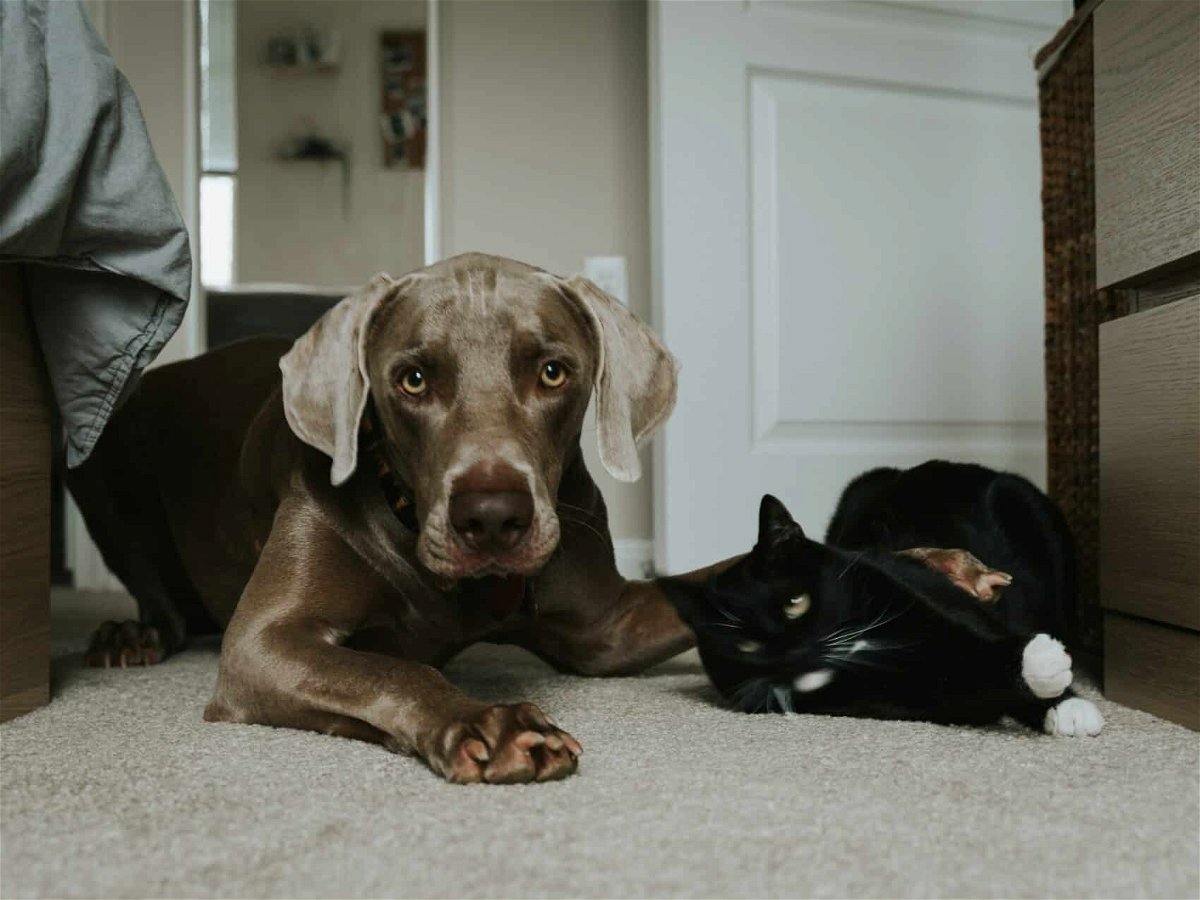
No responses yet